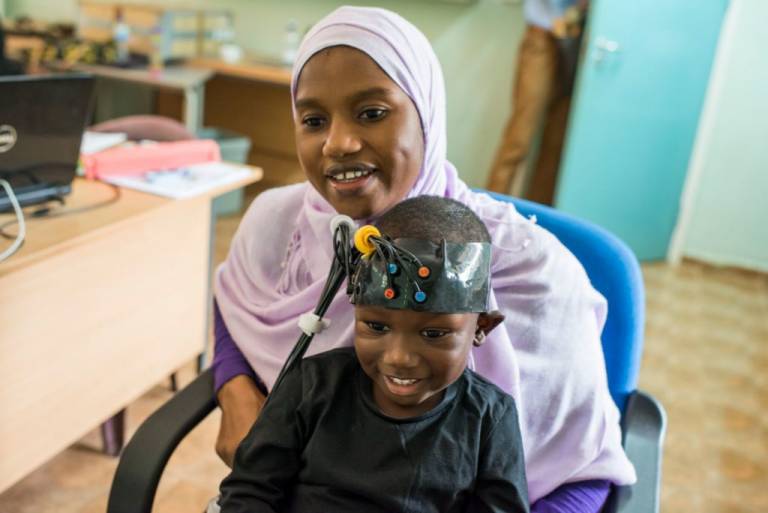Creating a brighter future for the world's poorest children
The BRIGHT Project is providing the first ever brain imaging of infants in Africa,

11 October 2018
1 in 3 pre-school age children in resource poor settings fail to reach their developmental milestones. Numerous risk factors can impact on a child's brain development in the early years of life and most critically within the first 24 months of life. Infants in low income, resource poor settings may be frequently exposed to a range of social, environmental, nutritional and pathological insults which can impact academic achievement and mental health into adulthood.
If we are going to develop interventions which reduce the impact of these insults we need methods that allow us to image infants' brain function from birth in a range of settings. The Brain Imaging for Global Health (BRIGHT) Project, funded by the Bill and Melinda Gates Foundation, aims to tackle this problem by using an optical brain imaging technque, near infrared spectroscopy (NIRS) to assess brain function.
NIRS is a portable low cost brain imaging technique which is ideally suited to studying young infants, and has been used to acquire the first ever brain images of infants in Africa. Along with growth, behavioural and socio-demographic measures, NIRS is being used to chart brain development in Gambian and UK infants from birth until their second birthday, and inform intervention strategies to protect the brains of some of the world's most vulnerable children.
The BRIGHT Project is led by Professor Clare Elwell in the UCL Department of Medical Physics and Bioengineering in collaboration with teams from Birkbeck University of London, the Medical Research Council Units in Cambridge and The Gambia at London School of Hygiene and Tropical Medicine, Cambridge University and Cambridge University Hospitals.
[Image credit: Bill and Melinda Gates Foundation]
Related links:
 Close
Close

